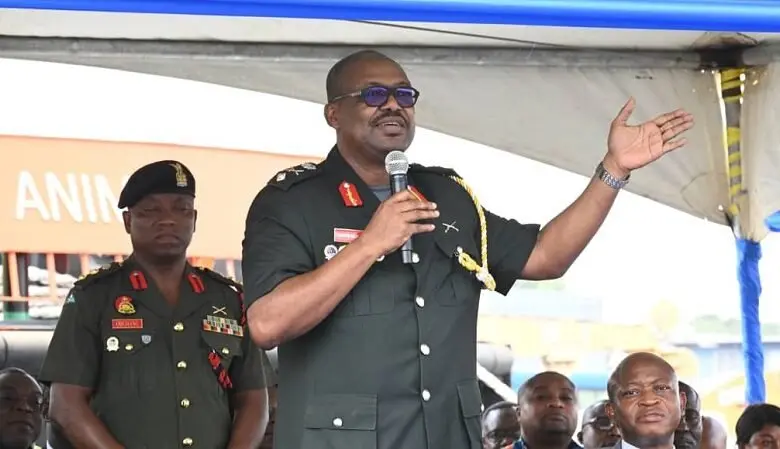Accra, Ghana – At the 2025 3i Africa Policy Forum, Dr. Johnson Asiama, Governor of the Bank of Ghana (BoG), articulated a vision for a continent-wide digital strategy poised to reshape Africa’s economic landscape. Dr. Asiama’s address underscored the crucial role of digital coordination in realizing Africa’s growth aspirations. This initiative aims to accelerate economic integration and growth across Africa. His core message highlighted the necessity of harmonized digital systems and the potential for a unified financial infrastructure to boost trade, support small businesses, and enhance financial inclusion across the continent. This article delves into Dr. Asiama’s central arguments, exploring the transformative power of digital coordination.
The forum gathered policymakers, fintech professionals, and stakeholders keen on understanding how Africa can leverage digital advancements to fuel its economic future. The need for a cohesive, continent-wide approach to digital infrastructure became a recurring theme, with participants emphasizing the benefits of a unified financial ecosystem. The Governor’s call for action resonated deeply, painting a picture of a more interconnected and prosperous Africa through strategic digital integration. The conversation underscored the pivotal role of digital coordination in realizing Africa’s growth aspirations.
Dr. Asiama emphasized that digital coordination is crucial for Africa’s financial future. Harmonized regulatory frameworks are needed to facilitate seamless transactions. “To fully realise the vision of One Africa, One Market, we must scale our efforts through continental coordination,” stated Dr. Johnson Asiama, Governor of the Bank of Ghana. He argued that this coordination is not just beneficial but essential for future growth, increasing efficiency and reducing costs associated with cross-border payments. A unified approach promises to streamline operations and create a more attractive environment for investment.
Africa’s digital transformation offers the opportunity to create a unified financial infrastructure, one that can support small businesses, promote trade, and increase financial access across borders. But scaling national initiatives to a continental level requires overcoming regulatory hurdles and ensuring interoperability. These are some key challenges to interoperability:
Different regulatory environments, varying technological standards, and a lack of trust and transparency across jurisdictions. Addressing these challenges is critical for unlocking the full potential of digital transformation. According to Tralac, intra-African trade remains significantly lower than trade within other regions, highlighting the untapped potential that enhanced digital infrastructure could unlock.
The Bank of Ghana is committed to facilitating seamless cross-border transactions and is working with regional and continental partners to remove barriers. This includes enabling real-time payments and digital financial services. The Bank of Ghana has been working with PAPSS (Pan-African Payment and Settlement System) and fintech passporting collaboration with Rwanda. “The Bank of Ghana remains firmly committed to this agenda…regional integration is achievable through trust-based partnerships,” said Dr. Johnson Asiama.
The Pan-African Payment and Settlement System (PAPSS) is a centralized payment and settlement infrastructure that facilitates efficient and secure cross-border payments within Africa, reducing reliance on third-party currencies and improving transaction times.
The 3i Africa Policy Forum focuses on innovation, investment, and inclusion in Africa’s fintech landscape. It attracts central bankers, tech leaders, and policymakers from across the continent. Dr. Asiama’s remarks reflect a growing consensus among African financial leaders. This consensus emphasizes deeper collaboration on digital infrastructure, with the goal of enhancing intra-African trade and economic resilience. Central bankers, tech leaders, and policymakers are among the attendees of the 3i Africa Policy Forum.
Dr. Asiama’s address at the 3i Africa Policy Forum underscores the urgent need for digital coordination to unlock Africa’s economic potential. By harmonizing regulatory frameworks, fostering interoperability, and building trust, African nations can create a unified financial infrastructure that supports small businesses, promotes trade, and increases financial inclusion. The Bank of Ghana’s commitment to facilitating seamless cross-border transactions, exemplified by initiatives like PAPSS, signals a proactive approach to regional integration. As Africa embraces digital transformation, coordinated efforts are paramount to achieving sustainable economic growth and resilience. Ultimately, the success of Africa’s growth strategy hinges on the collective commitment to digital coordination and collaboration.
Image Source: MYJOYONLINE





















